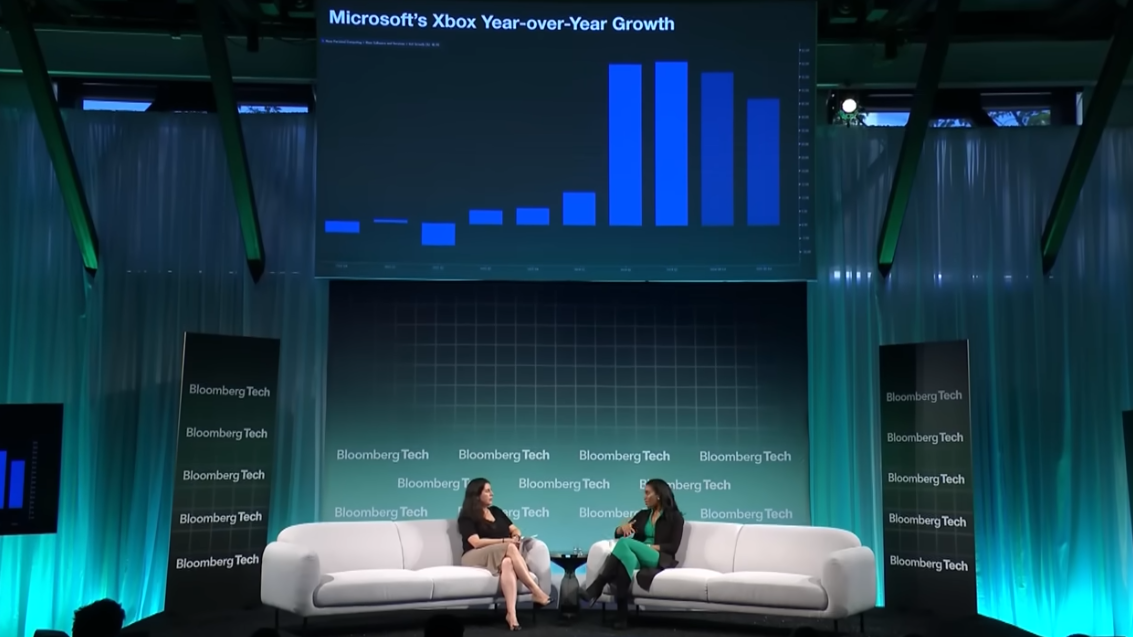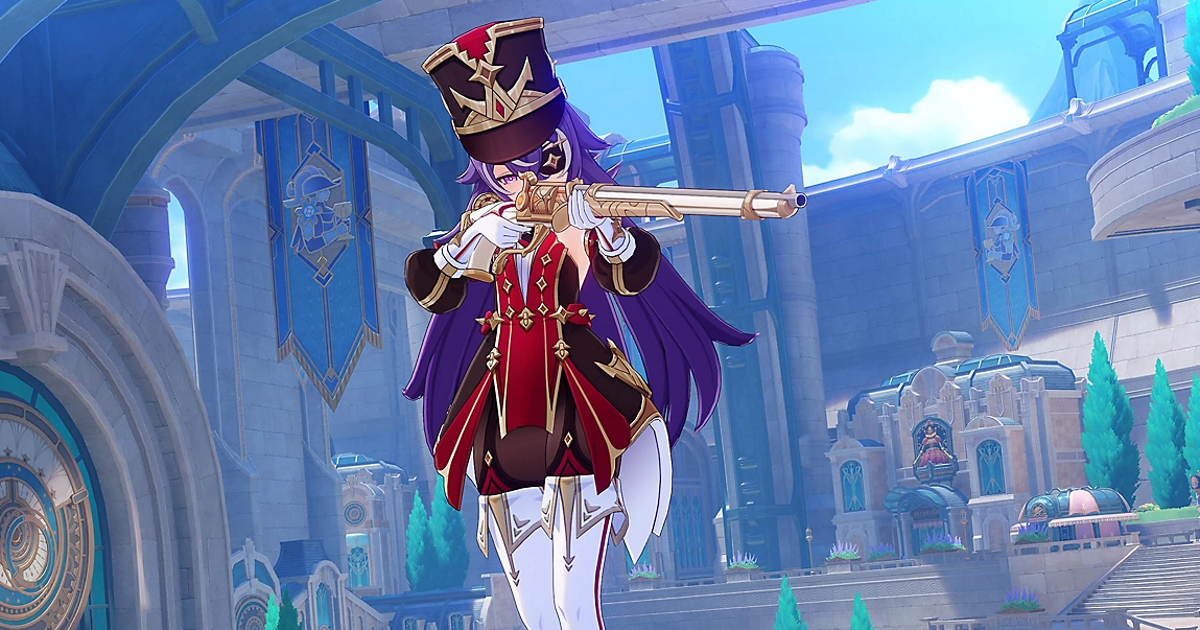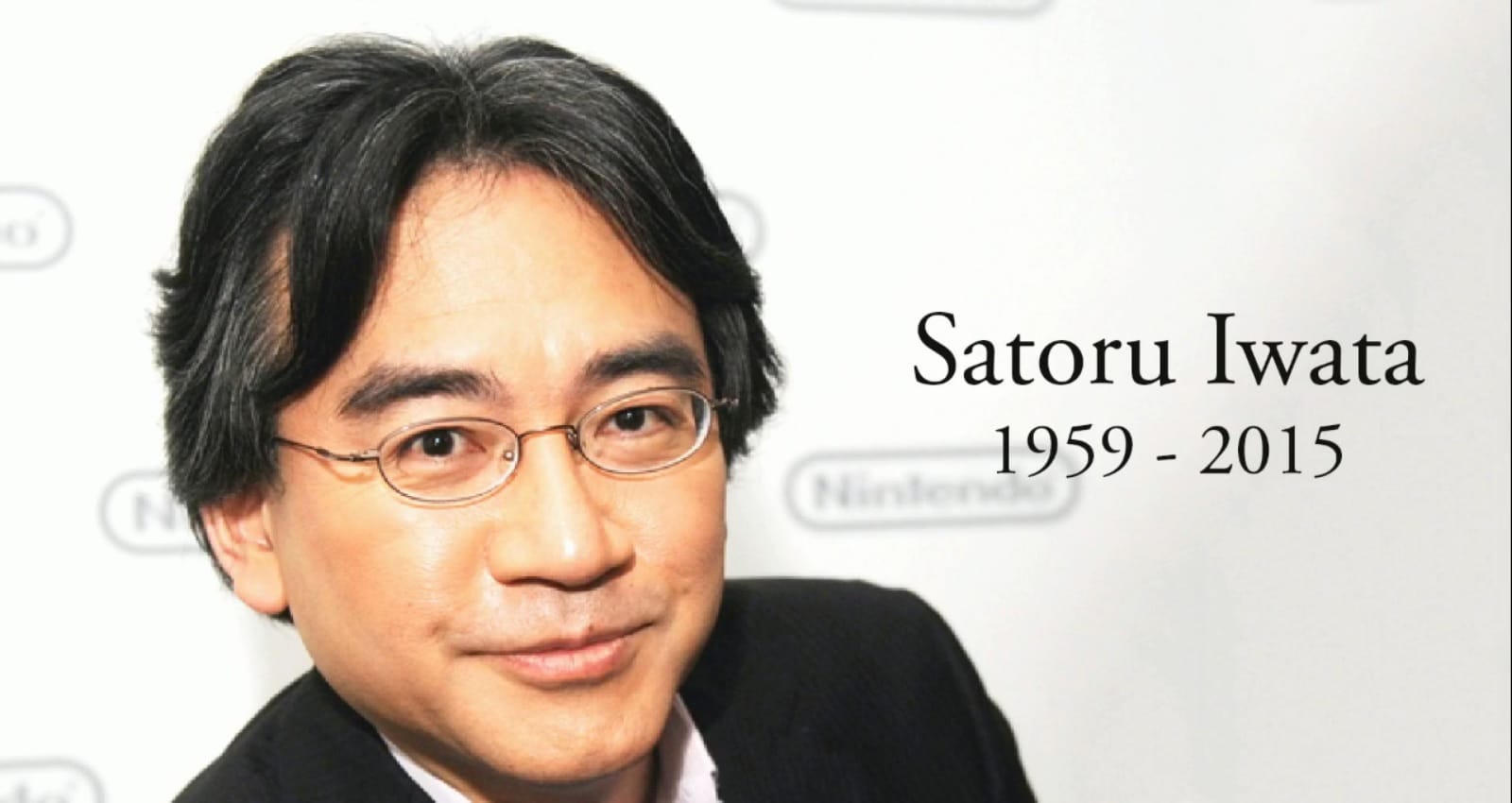Why Does The Video Game Industry Feel Like It's Collapsing?
It's not the 1980s, but why does it feel like the video game industry is collapsing again?
It’s 9pm on a Friday and another work week has come to a close. For the next two days you can relax and forget about increasing shareholder value via a series of elaborate team meetings that could have just been emails. Like any self-respecting individual, you turn a blind eye to any household chores that should come first and instead sit down to play some games. If you’re like me at all, you often have a hard time picking what to play – there’s just so many games to choose from and many of them are amazing. I could easily play games for eight hours a day and still not be able to play many of the best games released in a given year. We’re frequently spoiled for choice, so why then do so many people (my self included) feel like the industry is collapsing? Not like it did in the 80s, mind you, but a collapse of sorts all the same. Clearly, the industry isn’t financially collapsing, but I do think that the industry is changing in a way and at a pace that will present the same to many people regardless.
14,000 games were released on Steam in 2023. Over 2,000 were released for the Switch in the same year. Thousands of games, hundreds of which are notable to some meaningful degree, are being released on a yearly basis now. You would think that would indicate some sort of golden era for gaming, but it certainly doesn’t seem to be that way for many people – players and developers alike. What’s really driving this sentiment? The answer is simple, though the mechanisms behind it are a bit more complicated.
The line must go up. Capitalism, for all its benefits, is not without its drawbacks. When the system demands that growth be perpetual, but the environment doesn’t naturally allow it, it’s inevitable that artificial means will be employed to keep that line going in the preferred direction. At first that might not be necessary, though. The games industry for example has expanded and grown into new markets and demographics for decades. New people were readily available – they just had to be marketed to. With money being the closest to growing on trees it’s possibly ever been for over a decade; expansion was aggressively pursued. At some point, though, market saturation becomes a hurdle and it’s no longer possible to keep the line going up by simply collecting customers like Pokemon. The traditional games industry is running into this wall now.

PlayStation and Xbox are both having to find ways to rely less on traditional hardware sales as a means of growth and revenue. After the pandemic boosted playtime and sales across the industry, the drop off in 2022 has yet to rebound as many had hoped. Projections are down, and down is not up. The line must go up. With market saturation on both traditional hardware and software fronts looming, Xbox and Playstation in particular have had to find other ways to expand their businesses. In general, that has meant buying up publishers and developers to ensure that they are likely to own more of the games being released in a year and reducing the possible competition in the process. This rings particularly true for Microsoft’s Xbox who, without the recent Activision Blizzard King acquisition, would have experienced contraction and that wouldn’t have been good because of course, the line must go up. Market saturation isn’t just an in-house issue for many industry players, though – it’s also an external problem.
Some 20 games make up the majority of play time across the entire games industry right now – in fact it’s about 60%. Fortnite, Roblox, Minecraft, GTAV, Call of Duty, and other seemingly evergreen titles have a chokehold on player time that leaves the rest of the industry fighting for scraps. You might imagine then, that in an era in which thousands of games are being released in a year, that makes it particularly difficult to win the attention and dollars of players who aren’t already up to their eyeballs in v-buck purchases. It’s never been easier to make and release a game, but it’s also never been harder to earn a spot on someone’s wish list.
This isn’t just a challenge for solo developers, or even smaller indie teams. The market is so full to the brim with new games that even the heavy hitters are feeling it. The result of this is that even larger studios balance on a knife’s edge whenever they release a AAA title – good or not. The incredibly bloated development costs in terms of both time and money mean that a single failure puts a target on your back – something that Arkane Austin sadly found out just this week. Unfortunately, even if you release a game to much critical and commercial success it doesn’t mean you aren’t also on the block. Hi-Fi Rush’s developer Tango Gameworks is the most recent example of this after Xbox also closed them down in an apparent effort to ensure the long-term stability of Microsoft’s gaming branch. At least that’s what Sarah Bond sheepishly sputtered out as the reason in a recent interview with Bloomberg this week.

Tango Gameworks’ case in particular is interesting because it highlights most specifically where the industry is going – or perhaps where the industry is now. By all accounts, Hi-Fi Rush hit on everything Xbox had hoped for and then some. Jeff Grubb mentioned that it might not have generated enough revenue, but really – Xbox decided to ghost drop it on Game Pass and sold it for $30 otherwise so what did they expect. Regardless, Hi-Fi Rush and much of Tango Gameworks’ portfolio is exactly what Xbox has historically needed – a point Xbox execs admitted themselves, but it still wasn’t enough. This raises the question: what is enough, now?
Looking at how major players in the market are moving, I think it’s relatively obvious. If your game is not able to generate at least $500M in profit, or have a profit margin of at least 100%, it’s not going to cut it. Breaking even, or turning a reasonable profit is no longer good enough. At that point, it’s likely seen as more beneficial to put the devs on a project with a better chance at hitting these kinds of numbers. That list of games is not long, and it’s not particularly diverse, either.
Ultimately then, the over saturation of games is exacerbating the problem – at least it is for Sony and Microsoft. Even if you own and produce great games, there are so many of them vying for a reduced total player time that you’re going to have issues selling enough copies regardless. Critical success and positive player reception doesn’t mean a game will sell enough to reach a profit, after all. To mitigate this issue, publishers have invested in existing IP as we’ve seen with many remasters and remakes, as well as proven formulas and live service models. Microsoft specifically threw their weight around and bought Minecraft and Call of Duty outright, ensuring they benefit from their seemingly endless lifespan. Even still, with so much money on the line, these mitigating strategies don’t always pan out.
Now we’re seeing what comes next. Xbox in particular is having to cut way back after their $69bn buyout and they’re not done yet. I suspect Activision, Blizzard, King, and even their own Microsoft Game Studios will be experiencing heavy layoffs, closures, and personnel shuffling. If you can’t earn enough revenue to keep things trending upward, then the next best thing is to cut costs and that’s what we’re seeing everywhere – even in companies that are posting record profits. Sony has done a lot of this themselves, though obviously to a lesser degree given the difference in size.

All of these cuts hurt for a number of reasons, not least of which is the displacement of so much talent and the breaking up of groups with years of accumulated chemistry. One of the major pain points is that since these developers aren’t being sold off when they don’t perform as required, a mountain of intellectual property sits dormant in a vault somewhere, likely to not be seen for years if ever again. Intellectual property, mind you, that was being actively used – usually successfully which incentivizes the initial buyout – by a developer that is now scattered to the winds. I believe that on top of the record layoffs despite great profits, the combination of AAA homogenization and the consistent loss of well-known IP is what is contributing to people feeling like the industry is collapsing around them.
The reality is that the industry is in fact not collapsing at all and continues to print money. I’ve focused on Xbox and Playstation for much of this because they’re two of the three major players many people think of when they think gaming, but they aren’t the whole picture. Mobile gaming is massive, with single games like Genshin Impact generating billions of dollars a year in existing and emerging markets around the world. Whether you believe they’re real games or not, the suits compare mobile games to the traditional market all the same. To them, it makes little sense to spend money on a game like Hi-Fi Rush when they could attempt to create the next Genshin Impact or Fortnite. The line must go up.

Part of the problem is that this perpetual march upward at all costs places completely unrealistic expectations on developers regardless of size. Major publishers are signaling that you must be able to turn a massive profit even when the rest of the market isn’t. Macroeconomic forces be damned, you must beat the system for the glory of the shareholders. In many cases this is knowingly setting the developers up for failure. Obviously not every game is going to be able to accomplish this task, and when times are tough everywhere and the pressure is on the suits at the top, many development houses are going to be shit out of luck when they try to pitch their next game and it’s not a live service widget machine. Coincidentally, this is apparently what happened at both Arkane Austin, and Tango Gameworks. Arkane was looking to get a chance to do what they do best in a single player experience, and Tango wanted to follow up their new hit with a sequel.
This trend is awful for anyone who doesn’t just play one of the blackhole titles like Fortnite. The demands on developers for the sake of shareholders has impacted a large chunk of the market in a way that hurts those who see games as more than just widgets. Players are seeing, or at least feeling, the soul being sucked from many of the games being heavily marketed today. Games are, after all, in no small part an artistic expression and product of passion and it’s clear that Sony and Xbox have entered a phase in which those core aspects are taking the back seat.

EA, unsurprisingly, is also taking an aggressive line on this corporate gaming ethos. Shocking, I know. Just recently EA has talked about continuing to push for having advertisements in their games, and it doesn’t seem like we’re talking about your typical tie-ins with sports titles and billboards. If that doesn’t sound appealing to you, that means you still have a soul – congratulations. If your first thought was that you’d be ok with it as long as it was just an elaborate series of Cerveza Cristal placements…I’ll allow it.
Perhaps more damning, but even less surprising, EA CEO Andrew “I model myself after 90s businessman movie tropes” Wilson let everyone know in an earnings call that they learned so much from the previous Battlefield failures and that the next Battlefield was set to be a “Tremendous Live Service.” I don’t know about you, but having the CEO refer to Battlefield as a live service, and not even a live service *game* doesn’t instill a lot of confidence on a number of levels. What’s more, Wilson said that the teams are going to look to start using generative AI “as quickly as possible.” In fairness, that doesn’t necessarily mean they’ll be prompting for the most important aspects of their games – it could just be the next great iteration of the one true god SpeedTree…or at least that’s a nice thought.
I’m sure you’re wondering how I’ve managed to not talk about Nintendo this whole time. That’s because Nintendo is in a unique position – a position they very much put themselves in. Nintendo has never forgotten why people play their games, and they’ve consistently shown that now for over 40 years. Their consistent commitment to joy and quality in their games has put them in a position in which they hold numerous IP capable of selling well over a million copies on a whim. While that doesn’t sound like much compared to the benchmarks Sony and Microsoft might use, for Nintendo it's more than enough. They’ve found ways to keep costs down, game quality up, and as a result, enjoy profitable games without needing to sell several million copies – even though of course some do.
There is a stark corporate culture difference driving this, and it comes directly from Nintendo’s legendary leadership. While other companies are laying off thousands of workers and still paying their C suite millions in bonuses for being able to breathe and tie their shoes, in 2013 Iwata was willing to cut his salary in half to keep more employees working without worry during their tough Wii-U years. Now, the Switch era has become more profitable than all previous console eras combined. This is with far less powerful hardware, lower game budgets, and almost no modernized online functionality compared to that of its peers. Nintendo is proof that passion and leadership can produce incredible results, and that slow and steady often wins the race. Sony and Xbox could collapse in on themselves trying to chase the dragon, and Nintendo will still be standing. Decades of this dedication and passion has put them in a position that ensures no matter how saturated the rest of the market gets, their games are always in demand. You can’t easily buy your way into that overnight. It’s not that Nintendo doesn’t have their own issues, but it’s clear that they’re handling themselves far better than the competition – if you can even call Sony and Microsoft their competition at this point.

Look, it’s not like the concept of video games going corporate is new – it’s been around for a long time now. The difference is that the visible acceleration of the worst aspects of corporatization has never been more noticeable and with seemingly so much impact. There’s a lot of convergence happening in gaming right now, all of which presents a reward structure for C suites around the industry to weaponize their expected shareholder value fellation. Traditional games are merging with mobile monetization, cloud gaming is bridging console and PC gaming in emerging markets where mobile phones are king. The cost gap between consoles and gaming PCs is narrowing. Just saying the words Artificial Intelligence doubles your stock price. All of this is happening while traditional markets hit saturation points exacerbated by economic hardship globally. It’s a proper five alarm fire.
This all seems pretty dire, but here’s the good news: it’s not going to be this way forever – at least not to this degree. The games industry is in arguably the biggest transitional period in its history, and it’s unfortunately being led by the nose mostly by people who have no attachment to the hobby or culture. While that’s unlikely to change, what also won’t change is the market only being able to bear so much bullshit – and this is a lot of bullshit. The best thing to do right now is remember that there are still a lot of really amazing games being released and if you like them, you should absolutely support them. Hi-Fi Rush getting review love bombed after the demise of Tango Gameworks is a nice gesture, but had it gotten that kind of support earlier it might have stayed the hand wielding the axe. The old adage “vote with your wallet” has possibly never been more applicable than it is now as the industry triples down on capitalistic maximalism. If players aren’t buying in to the bullshit the line doesn’t go up, and as we all know – the line must go up.


